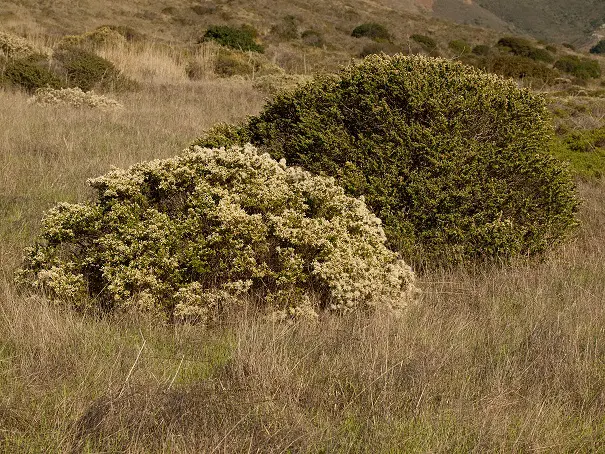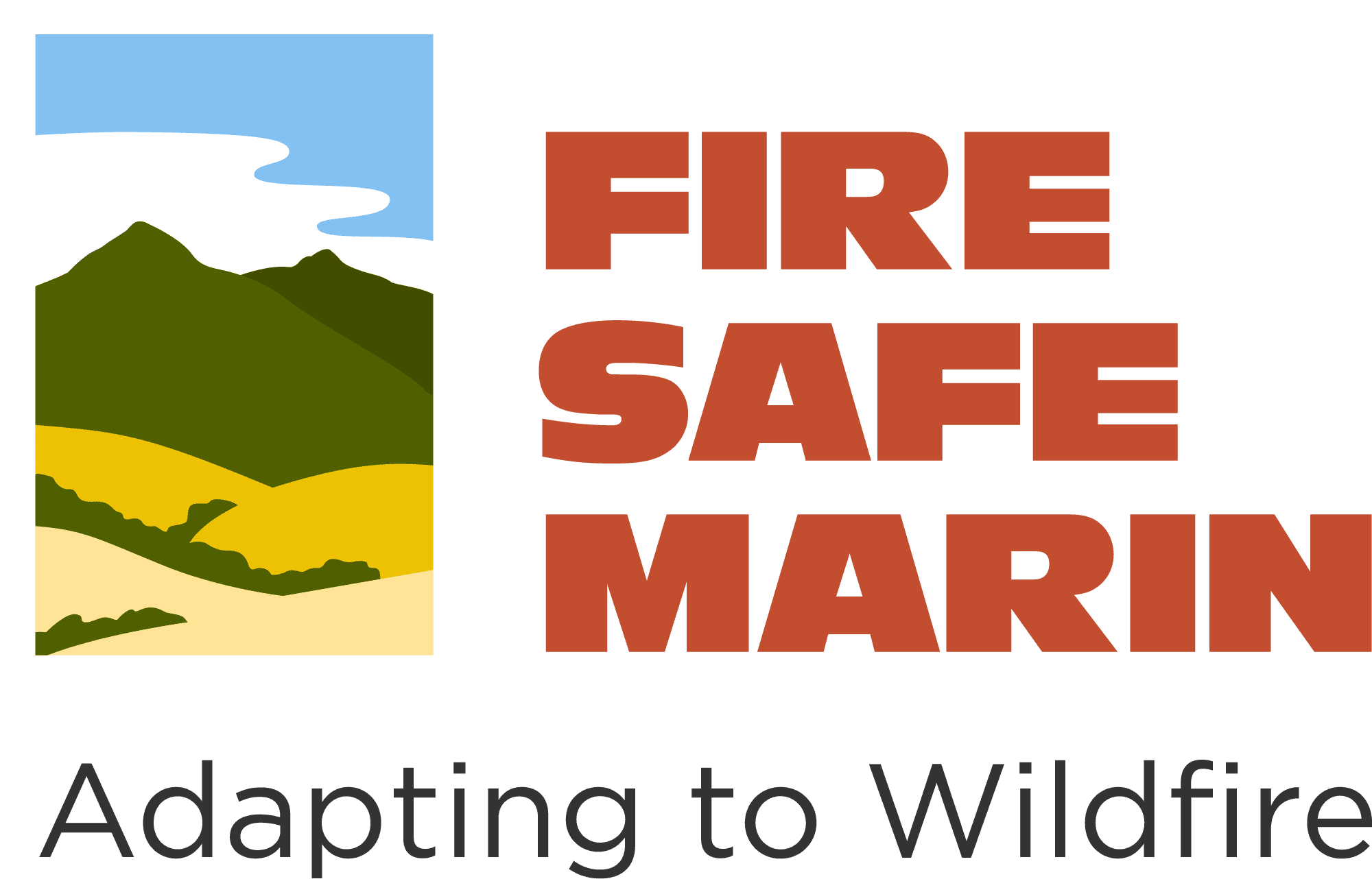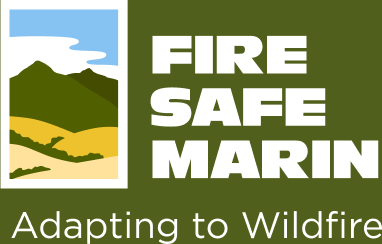
Baccharis pilularis, called coyote brush (or bush), chaparral broom, and bush baccharis, is a shrub in the daisy family native to California, Oregon, Washington, and Baja California. The plants are found in a variety of habitats, from coastal bluffs, oak woodlands, and grasslands, including on hillsides and in canyons, below 2,000 feet (610 m).
Coyote brush is known as a secondary pioneer plant in communities such as coastal sage scrub and chaparral. It does not regenerate under a closed shrub canopy because seedling growth is poor in the shade. Coast live oak, California bay, Rhus integrifolia, and other shade producing species replace coastal sage scrub and other coyote bush-dominated areas, particularly when there hasn’t been a wildfire or heavy grazing.
In California grasslands, it comes in late and invades and increases in the absence of fire or grazing. Coyote bush invasion of grasslands is important because it helps the establishment of other coastal sage species.
Fire Resistant or Fire Hazardous?
Coyote brush (Baccharis pilularis) is only moderately fire resistant when it is young and green. After 2-5 years, most coyote brush builds up an increasing amount of dead, woody material that may be highly combustible. This buildup is nature’s way of encouraging fires, which Coyote brush depends on to regenerate.
As with many plants, it can be maintained in a state of relatively low combustibility, however due to the high maintenance and irrigation requirements, FIRESafe MARIN considers it to be fire-hazardous and do not recommend it within 30′ of any structures. When present, it must be maintained well spaced, as single specimens, and cut back regularly to remove deadwood and encourage new, green growth. Regular, light irrigation may improve its fire resistance.
Should be removed within 30′ of structures. Separation of plants from 30′ to 100′ of structures is important. If removal is not an option, maintain completely free of dead twigs and leaves. Can be made slightly more fire resistant with indirect watering once a week.







